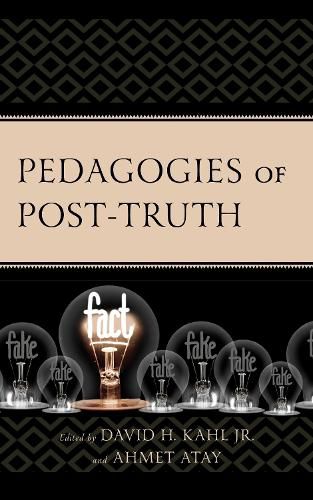Readings Newsletter
Become a Readings Member to make your shopping experience even easier.
Sign in or sign up for free!
You’re not far away from qualifying for FREE standard shipping within Australia
You’ve qualified for FREE standard shipping within Australia
The cart is loading…






Pedagogies of Post-Truth explores the national and international political developments in what has been called a post-truth society; specifically, in which conservative groups target media outlets claiming fabrication of news and that the veracity of evidence-based reporting should be questioned. Truth has been reduced to the validation of opinions instead of the presentation of scientific facts. This collection responds to these issues by initiating a scholarly dialogue about teaching in the era of post-truth in which research-based findings that do not align with political viewpoints are judged, criticized, and often described as fake. Contributors evaluate the pedagogical challenges of post-truth discourse and how post-truth messages negatively affect instructors and students. By highlighting ways instructors and students can resist the hegemony of post-truth, this book creates a dialogue among scholars, illustrates the challenges, and offers pedagogical techniques to discuss post-truth, the role of the educator, the role of media, and the role of other story-makers of our society.
$9.00 standard shipping within Australia
FREE standard shipping within Australia for orders over $100.00
Express & International shipping calculated at checkout
Pedagogies of Post-Truth explores the national and international political developments in what has been called a post-truth society; specifically, in which conservative groups target media outlets claiming fabrication of news and that the veracity of evidence-based reporting should be questioned. Truth has been reduced to the validation of opinions instead of the presentation of scientific facts. This collection responds to these issues by initiating a scholarly dialogue about teaching in the era of post-truth in which research-based findings that do not align with political viewpoints are judged, criticized, and often described as fake. Contributors evaluate the pedagogical challenges of post-truth discourse and how post-truth messages negatively affect instructors and students. By highlighting ways instructors and students can resist the hegemony of post-truth, this book creates a dialogue among scholars, illustrates the challenges, and offers pedagogical techniques to discuss post-truth, the role of the educator, the role of media, and the role of other story-makers of our society.